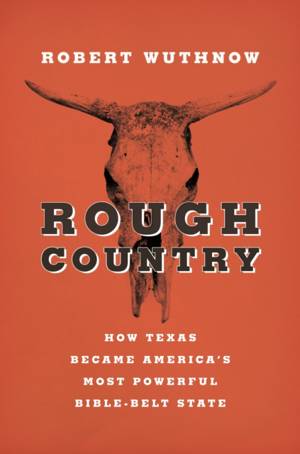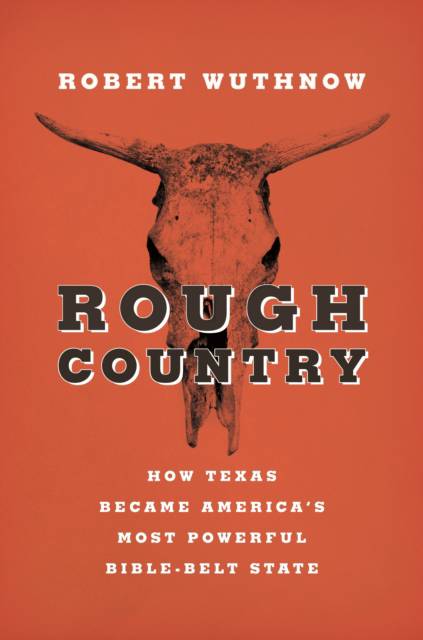
Door een staking bij bpost kan je online bestelling op dit moment iets langer onderweg zijn dan voorzien. Dringend iets nodig? Onze winkels ontvangen jou met open armen!
- Afhalen na 1 uur in een winkel met voorraad
- Gratis thuislevering in België vanaf € 30
- Ruim aanbod met 7 miljoen producten
Door een staking bij bpost kan je online bestelling op dit moment iets langer onderweg zijn dan voorzien. Dringend iets nodig? Onze winkels ontvangen jou met open armen!
- Afhalen na 1 uur in een winkel met voorraad
- Gratis thuislevering in België vanaf € 30
- Ruim aanbod met 7 miljoen producten
Zoeken
Rough Country
How Texas Became America's Most Powerful Bible-Belt State
Robert Wuthnow
Paperback | Engels
€ 44,95
+ 89 punten
Uitvoering
Omschrijving
How the history of Texas illuminates America's post-Civil War past
Tracing the intersection of religion, race, and power in Texas from Reconstruction through the rise of the Religious Right and the failed presidential bid of Governor Rick Perry, Rough Country illuminates American history since the Civil War in new ways, demonstrating that Texas's story is also America's. In particular, Robert Wuthnow shows how distinctions between "us" and "them" are perpetuated and why they are so often shaped by religion and politics. Early settlers called Texas a rough country. Surviving there necessitated defining evil, fighting it, and building institutions in the hope of advancing civilization. Religion played a decisive role. Today, more evangelical Protestants live in Texas than in any other state. They have influenced every presidential election for fifty years, mobilized powerful efforts against abortion and same-sex marriage, and been a driving force in the Tea Party movement. And religion has always been complicated by race and ethnicity. Drawing from memoirs, newspapers, oral history, voting records, and surveys, Rough Country tells the stories of ordinary men and women who struggled with the conditions they faced, conformed to the customs they knew, and on occasion emerged as powerful national leaders. We see the lasting imprint of slavery, public executions, Jim Crow segregation, and resentment against the federal government. We also observe courageous efforts to care for the sick, combat lynching, provide for the poor, welcome new immigrants, and uphold liberty of conscience. A monumental and magisterial history, Rough Country is as much about the rest of America as it is about Texas.Specificaties
Betrokkenen
- Auteur(s):
- Uitgeverij:
Inhoud
- Aantal bladzijden:
- 664
- Taal:
- Engels
Eigenschappen
- Productcode (EAN):
- 9780691169309
- Verschijningsdatum:
- 5/04/2016
- Uitvoering:
- Paperback
- Formaat:
- Trade paperback (VS)
- Afmetingen:
- 152 mm x 234 mm
- Gewicht:
- 907 g

Alleen bij Standaard Boekhandel
+ 89 punten op je klantenkaart van Standaard Boekhandel
Beoordelingen
We publiceren alleen reviews die voldoen aan de voorwaarden voor reviews. Bekijk onze voorwaarden voor reviews.











